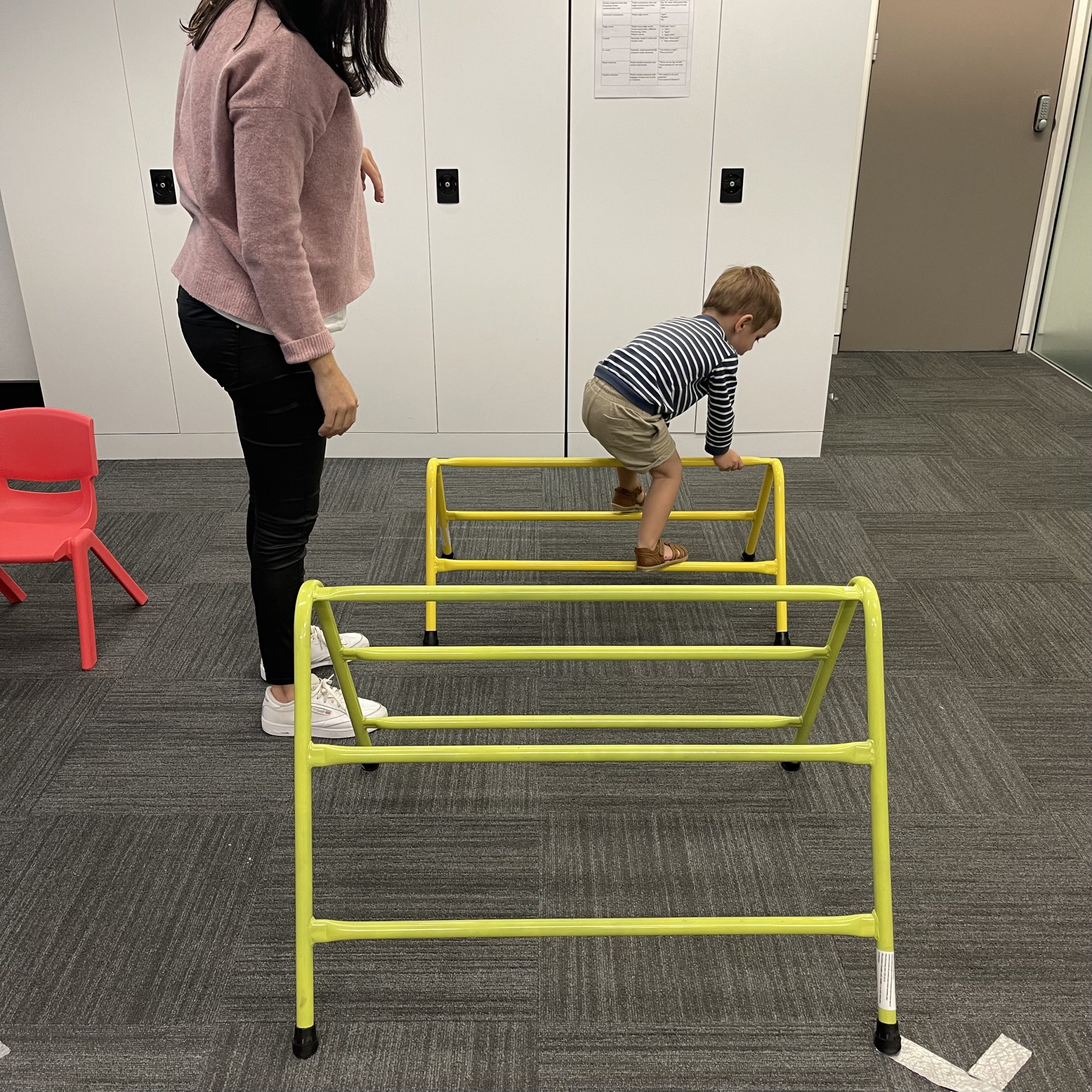
Understanding Developmental Delay and Global Developmental Delay: A Guide from Occupational Therapists in Bondi Junction and Mascot
Developmental delays, particularly global developmental delay, are important terms used when a child isn’t reaching expected milestones. These milestones represent the skills children typically acquire as they grow, such as walking, talking, and playing. At OneOnOne Children’s Therapy in Bondi Junction and Mascot, our team of Occupational Therapists helps identify and support children with these delays to improve their overall development.
What is Child Development?
Child development refers to the stages that children go through as they grow and learn essential skills. These skills develop across several key areas, such as:
- Social and emotional development: Understanding and expressing emotions, forming relationships, and controlling feelings.
- Cognitive skills: Thinking, learning, and problem-solving abilities.
- Speech and language: Understanding others and communicating needs.
- Motor skills: Using small muscles for fine motor tasks (like writing) and large muscles for gross motor tasks (like running).
- Self-care skills: Becoming independent in tasks such as dressing, eating, and going to the toilet.
What is Developmental Delay?
Developmental delay occurs when a child doesn’t reach these milestones within the typical time frame. Each child develops at their own pace, but if a child consistently falls behind their peers in multiple areas, it may indicate a developmental delay.
For example:
- A toddler who struggles with fine motor skills might have trouble holding a pencil or playing with small toys.
- A child experiencing speech and language delays may find it difficult to express themselves or understand simple instructions.
What is Global Developmental Delay?
Global developmental delay refers to delays across multiple areas of development that have been ongoing for more than six months. This means a child might have difficulty in several areas, such as motor skills, language, and cognitive development, all at once.
The Importance of Early Intervention
Early detection and intervention are crucial. Research shows that the earlier a child receives therapy, the better their outcomes are likely to be. For children showing signs of developmental delay, working with an Occupational Therapist in Bondi Junction or Mascot can significantly boost their ability to develop essential skills and reach milestones. Early intervention can support growth in fine motor skills, speech, and overall coordination, helping children become more independent and confident.
What Causes Global Developmental Delay?
There are various causes of global developmental delay, including genetic conditions, complications during birth, and health issues such as hearing or vision problems. However, in some cases, the cause may not be immediately apparent. As children get older, they may be diagnosed with other conditions such as autism or intellectual disability, which provide more specific reasons for their developmental challenges.
Signs of Developmental Delay
Some of the common signs include:
- Trouble understanding instructions.
- Difficulty pronouncing sounds or forming sentences.
- Poor balance or frequent falling.
- Difficulty with fine motor tasks, like writing or using scissors.
- Taking longer to learn to use the toilet or dress independently.
How Occupational Therapy Helps
Occupational Therapy (OT) plays a vital role in helping children with developmental delays gain the skills they need to thrive. Our Occupational Therapists in Bondi Junction and Mascot focus on creating customised therapy plans tailored to each child’s specific needs. Through engaging activities, we help children develop fine motor skills, improve balance, and learn self-care skills such as feeding and dressing.
OT can also support children with sensory processing issues, helping them feel more comfortable and confident in their environments.
When Should You Seek Help?
If you notice your child is consistently behind in reaching milestones, it’s essential to seek professional advice. Speaking with your GP, a paediatrician, or a therapist can provide clarity. Early intervention is critical, and working with an Occupational Therapist can help your child make meaningful progress.
How We Can Help
At OneOnOne Children’s Therapy, our experienced team of Occupational Therapists in Bondi Junction and Mascot is dedicated to helping children with developmental delays and global developmental delay. We offer tailored therapy plans designed to support your child in reaching their full potential. Our goal is to provide a nurturing, engaging environment where every child can thrive and develop essential skills.
Contact Us
If you’re concerned about your child’s development or want to learn more about how Occupational Therapy can help, reach out to OneOnOne Children’s Therapy. Our clinics in Bondi Junction and Mascot offer a range of services, including assessments, therapy sessions, and parent support. Call us at (02) 80657837 to discuss how we can support your child’s unique journey.
At OneOnOne Children’s Therapy, we’re here to help your child overcome challenges and unlock their potential. Don’t wait—contact us today!
